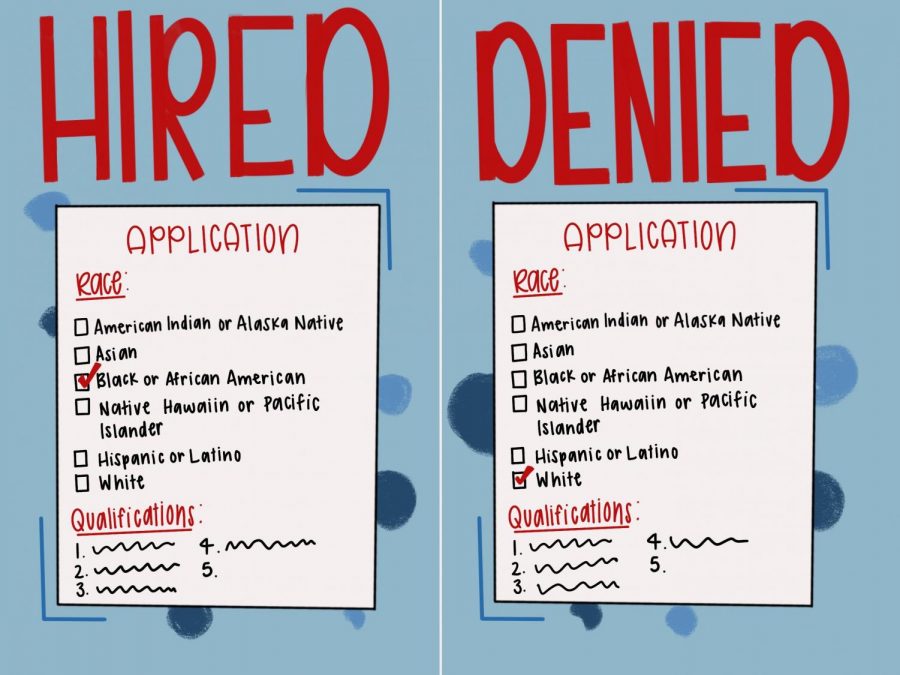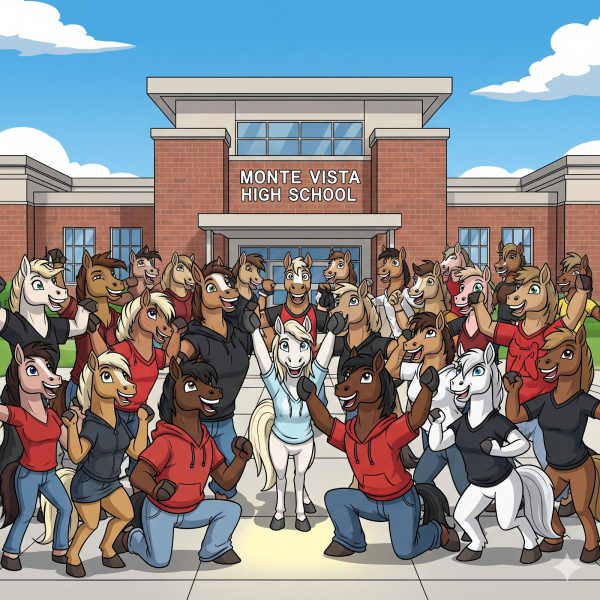Affirmative Action: A band-aid on a bullet wound
Proposition 16, which would write Affirmative Action into law, appeared on the general election ballot of California on November 3, 2020, and on Nov. 24, it was defeated. Prop. 16 was intended to nullify Proposition 209, which made it illegal for governmental institutions to discriminate based on race, sex or ethnicity.
Prop. 16—also referred to as Assembly Constitutional Amendment 5 (ACA 5)—was proposed by Shirley Weber, a representative of the California State Assembly. It lost 42.8% to 57.2%, a wider margin than the success of Prop. 209, which outlawed Affirmative Action (AA) in California.
ACA 5 “permits government decision-making policies to consider race, sex, color, ethnicity, or national origin to address diversity”. It would allow discrimination and preferential treatment in the California Constitution.
Even though AA was supposed to provide greater opportunities for marginalized communities, it would not have been effective in doing so because it avoided addressing the true problem of minorities’ conditions. The discrimination that minorities face cannot be solved simply by giving them an edge in admissions.
“You can’t legislate compassion,” said senior Charis Zhang, the co-founder of Stiddle, an advertising company. “You also can’t legislate inclusion.”
The passage of a law regarding racial inclusion would not affect the culture around it. Historically, efforts to move toward a more progressive culture through legislation, while moving in the right direction, did not change the popular perception of minorities for the better. For example, after Brown v. Board of Education established the unconstitutionality of segregated schools, black students attending primarily white schools were still heckled and made to feel unwelcome by fellow students.
Educational diversity is beneficial because of a greater array of ideas and perspectives, which leads to a more productive and well-rounded environment. These benefits should be organically produced with effective, qualified people from different backgrounds, not through racial discrimination or preferential treatment.
“If you rid yourself of biases and you truly believe that diversity of thought matters, the end result, regardless, would just be a racially diverse team,” an anonymous business owner said.
“If you have to go out of your way just to hire people of color, it says something about you that I don’t think you want it to say about you.”
AA potentially discredits the efforts and potential of people who are products of the institution by making race, an uncontrollable characteristic, a relevant factor in a person’s admission.
“Imagine living your life knowing that everyone else thinks that your hard work is nothing compared to how much the system just helped you out,” the business owner said.
The entire basis of AA is condescending and patronizing. It does not reward hard work, and not only does it not prevent racial discrimination, it in fact writes it into law.
Ironically, what undermines the views of conservatives and people against Prop 16 is the idea that banning AA is racist. Opponents of Prop 16 do not ignore underprivileged communities, as well as the historical hardships of African Americans. While the premise of AA bears the right idea, it is not the right solution to the problem.
Historically, minority groups in America were oppressed and the remnants of this discriminatory mindset still persist today, both socially and economically. Because of this disadvantage, it is more difficult for these marginalized communities to reach the same level of education and financial stability as other citizens. This makes it necessary for steps to be taken to offset the effects of historical prejudice.
A more important step to take would be giving marginalized communities the resources to improve their primary education and living conditions so that new generations could beat out competition without needing to take background into consideration.
“We should have funding from the state and government to help all [of the] communities [so] that we can have equal opportunities,” said a Monte Vista student who chose to remain anonymous. “When you have a strong foundation that’s built on the same education, you’re setting people up for success. You’re giving them a strong foundation on which to build upon.”

Zoe Qian is a senior in her second year on the Stampede. She is the Arts and Entertainment editor and...

Mason Hanshaw is a senior at Monte Vista and is the Editor-in-Chief for the 2020-21 school year. Mason...










